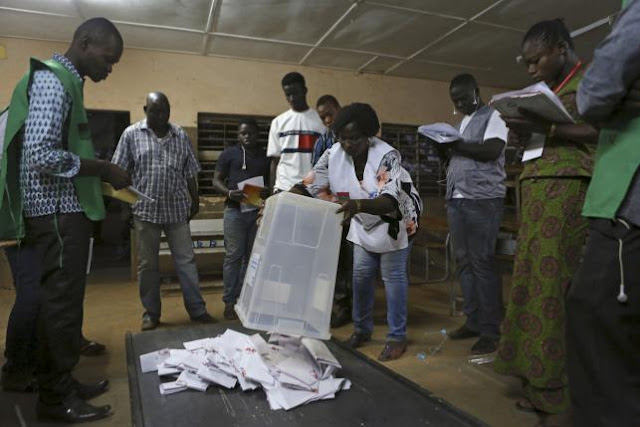Sunday’s peaceful election comes after longtime leader Blaise Compaore was toppled in a popular uprising in October 2014 in which demonstrators faced down the security forces over his attempt to extend his tenure.
The vote could serve as an example for democratic transition in Africa, where veteran rulers in Burundi and Congo Republic have this year changed the constitution to pave the way for a fresh term in office.
It also represents a pivotal moment for a nation ruled by leaders who came to power in coups for most of its history since independence from France in 1960.
There was strong turnout in all 45 provinces and logistical problems at the start of the day were by-and-large resolved, Barthelemy Kere, president of the Independent National Electoral Commission, told a news conference late on Sunday.
Analysts say only two of the 14 candidates stand a real chance of winning and a second round is possible, though in the absence of reliable opinion polls it is difficult to tell.
One is Roch Marc Kabore, prime minister and president of the National Assembly under Compaore. The other is Zephirin Diabre, who was minister of finance in the 1990s before stepping down to start an opposition party.
Kabore heads the Movement of People for Progress (MPP), made up of disaffected allies of Compaore who left the party months before he stood down. Diabre fronts the Union for Progress and Change (UPC), which was the formal opposition.
By 6:30 a.m. (0630 GMT) the electoral commission had announced results for 21 communes out of 368 communes total and those showed Kabore in the lead with Diabre second.
Compaore seized power in a coup, ruled for 27 years and won four elections, all of which were criticised as unfair.

No comments :
Post a Comment